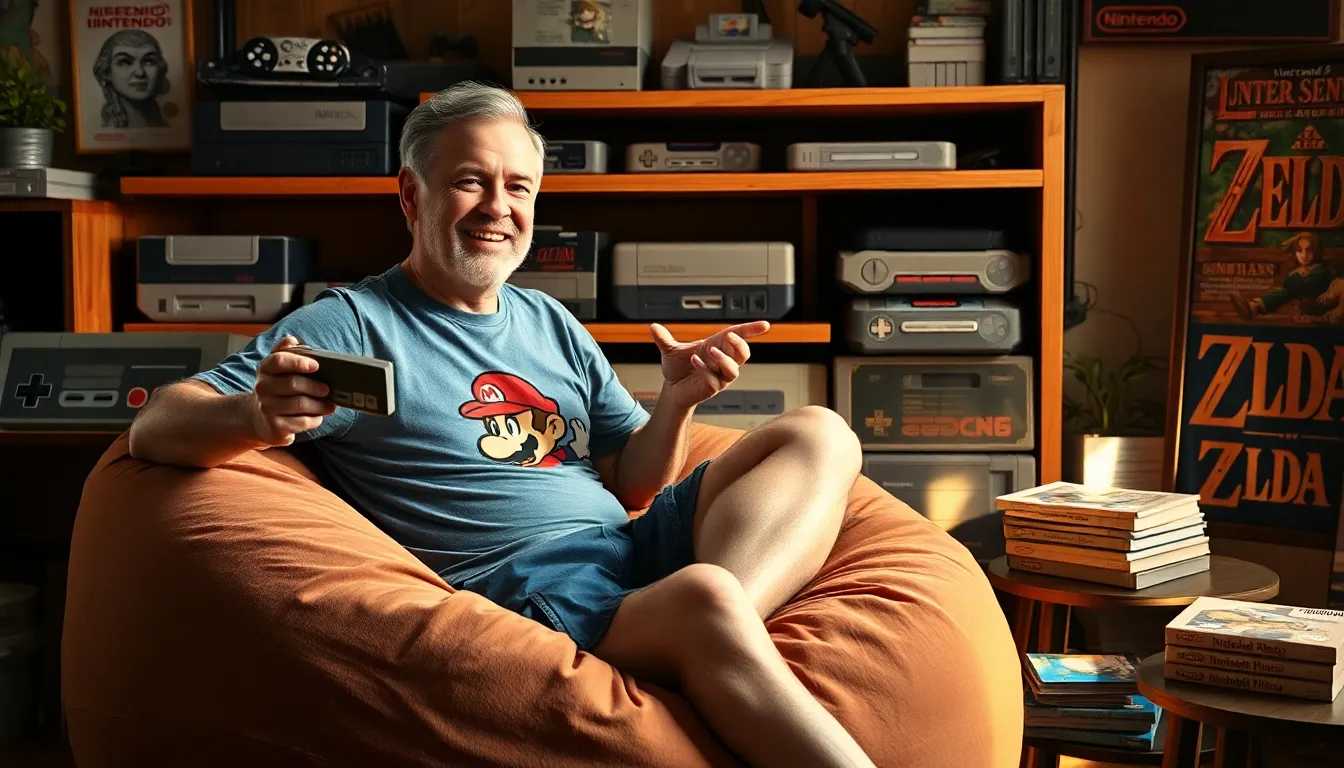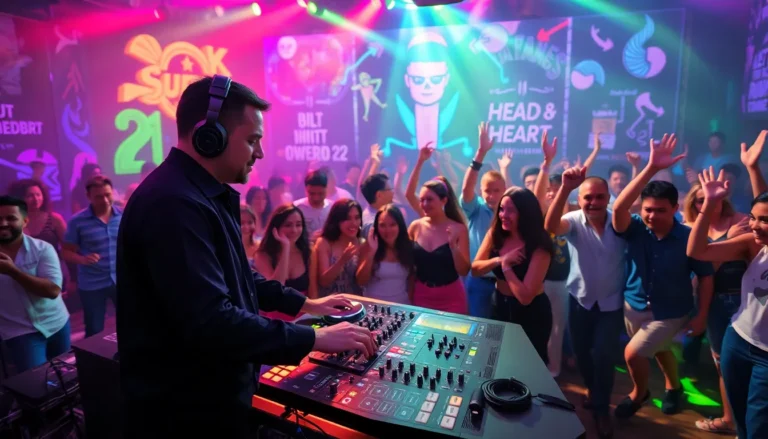Table of Contents
ToggleNintendo has established itself as an enduring symbol in the world of gaming, captivating audiences for decades. Through an incredible evolution of consoles and unforgettable game titles, this iconic company has shaped not just the industry, but the very landscape of pop culture. In this text, we explore the vast history of Nintendo, the cultural significance of its games, and the lasting impressions they have made on gamers around the world.
The Rich History Of Nintendo

Pioneering Gaming Consoles
Nintendo began its journey in 1889 as a playing card company in Kyoto, Japan. It wasn’t until the late 20th century that it made its mark on the burgeoning video game industry. The Nintendo Entertainment System (NES), released in North America in 1985, redefined home gaming, introducing millions to the joy of video games. The NES featured a revolutionary controller design and a vast library of games that included classics like “Super Mario Bros” and “The Legend of Zelda.”
Following the NES, Nintendo continued to innovate with the release of the Super Nintendo Entertainment System (SNES) in 1990, introducing enhanced graphics and sound. Over the years, Nintendo would go on to create many iconic consoles, including the Nintendo 64, GameCube, Wii, and Nintendo Switch, each advancing gaming technology and player interaction.
Iconic Game Franchises
While the consoles provided a foundation, it was the games that garnered Nintendo its legendary status. Franchises like “Mario,” “Zelda,” and “Pokémon” have become cultural phenomena. Each new release builds on the rich narratives and imaginative worlds that draw players in and keep them engaged. The success of these franchises demonstrates Nintendo’s commitment to creating experiences that resonate on multiple levels, making them not just games but lasting memories for players around the globe.
Cultural Impact Of Nintendo Games
Nostalgia In Gaming Culture
Nintendo titles have become a significant part of many gamers’ childhoods. The nostalgia associated with characters like Mario and Link carries weight in popular culture, evidenced by merchandise, fan art, and even music. Each iconic sound effect and level design brings back fond memories, invoking emotions tied to the moment of discovery in a game.
This nostalgia is not simply personal: it connects generations. Parents who experienced these games in their youth now share them with their children, creating family traditions around gaming. Many find comfort in revisiting these titles, underscoring Nintendo’s role in shaping joyful moments across different eras.
The Role Of Nintendo In Shaping Childhood Memories
For many, Nintendo games were gateways to imaginative worlds and adventures. Titles like “The Legend of Zelda: Ocarina of Time” or “Super Mario 64” introduced players to open-world exploration, story-driven quests, and the thrill of overcoming challenges. These experiences have a lasting effect on individuals, shaping their creativity and fostering problem-solving skills.
In educational discussions about gaming, it’s clear that these early experiences often lay the groundwork for lifelong interests in technology and storytelling. Nintendo’s emphasis on imaginative gameplay continues to leave a mark on players of all ages.
Exploring Nintendo’s Influence On Gamers
Innovative Gameplay Mechanics
Nintendo has consistently pushed the boundaries of gameplay mechanics, setting standards that other developers strive to reach. One of the most notable innovations came with the Wii, which introduced motion controls, allowing players to engage physically with games. This shift not only catered to core gamers but also attracted casual players, thereby broadening the gaming community.
Besides, the Nintendo Switch’s hybrid design, functioning seamlessly as both a home console and handheld device, has redefined gaming flexibility, allowing players to enjoy experiences at home or on the go. As gamers navigate various challenges, Nintendo’s creative innovations continue to inspire, encouraging engagement and interaction in ways that transcend traditional gaming limits.
Community Engagement And Fan Culture
Fan Theories And Lore Discussions
Nintendo has a unique relationship with its fanbase, fostering a culture of engagement and discussion. Fans dissect storylines, theorize about characters’ motives, and dive deep into the lore that surrounds beloved games. For instance, the intricate timelines of “The Legend of Zelda” series have led to animated debates and fan reinterpretations.
Online platforms bring together passionate individuals who share their interpretations and creations, enhancing the overall gaming experience. Fans feel part of a community that cherishes and revitalizes existing narratives, making Nintendo’s universes richer and continually evolving.
Creating Memories: Personal Experiences With Nintendo
Sharing Personal Gaming Journeys
Throughout their gaming journeys, individuals often have memorable experiences tied to Nintendo. Perhaps it’s the triumphant feeling of completing “Super Mario” with a sibling, or the hours spent planning strategies in “Pokémon” with friends. These moments create lasting bonds between players, fostering friendships built on shared experiences.
Social media platforms and forums have become spaces for gamers to share these stories, highlighting their love for beloved franchises. Such narratives contribute to a vibrant tapestry of community engagement, eventually reinforcing the emotional connection players have with Nintendo.
Conclusion
As one delves into the libraries of Nintendo, it becomes evident that this groundbreaking company has left an indelible mark on not just gaming, but on society as a whole. The rich history and cultural impact of Nintendo resonate through the stories and memories of countless players. From innovative consoles and gameplay to community engagement and personal anecdotes, the influence of Nintendo continues to thrive, shaping not only the gaming landscape but also the hearts of those who experience its magic.





